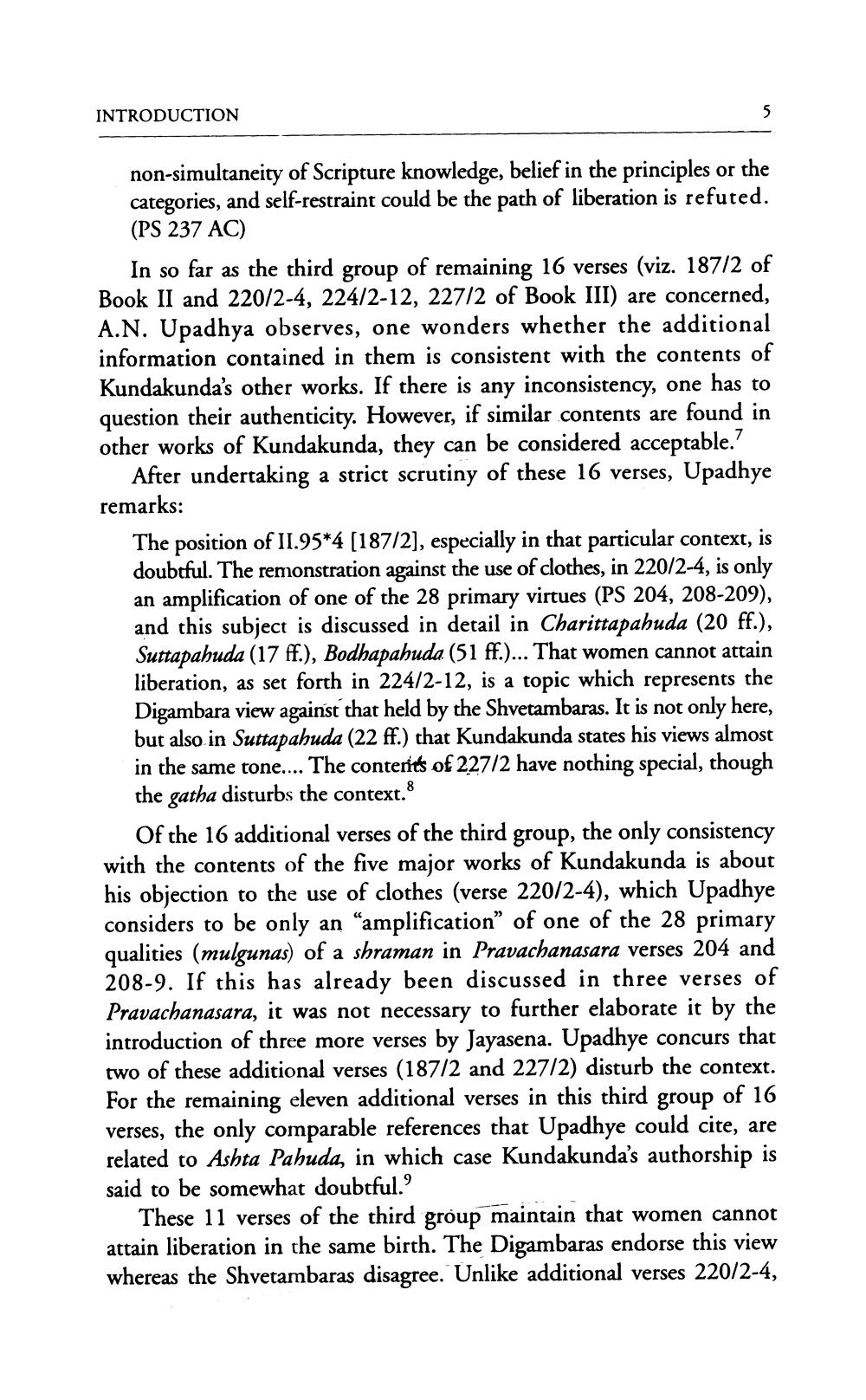________________
INTRODUCTION
non-simultaneity of Scripture knowledge, belief in the principles or the categories, and self-restraint could be the path of liberation is refuted. (PS 237 AC)
In so far as the third group of remaining 16 verses (viz. 187/2 of Book II and 220/2-4, 224/2-12, 227/2 of Book III) are concerned, A.N. Upadhya observes, one wonders whether the additional information contained in them is consistent with the contents of Kundakunda's other works. If there is any inconsistency, one has to question their authenticity. However, if similar contents are found in other works of Kundakunda, they can be considered acceptable.?
After undertaking a strict scrutiny of these 16 verses, Upadhye remarks:
The position of II.95*4 [187/2], especially in that particular context, is doubtful. The remonstration against the use of clothes, in 220/2-4, is only an amplification of one of the 28 primary virtues (PS 204, 208-209), and this subject is discussed in detail in Charittapahuda (20 ff.), Suttapahuda (17 ff.), Bodhapahuda (51 ff.)... That women cannot attain liberation, as set forth in 224/2-12, is a topic which represents the Digambara view against that held by the Shvetambaras. It is not only here, but also in Suttapahuda (22 ff.) that Kundakunda states his views almost in the same tone.... The conteries of 227/2 have nothing special, though the gatha disturbs the context.
Of the 16 additional verses of the third group, the only consistency with the contents of the five major works of Kundakunda is about his objection to the use of clothes (verse 220/2-4), which Upadhye considers to be only an "amplification” of one of the 28 primary qualities (mulgunas) of a shraman in Pravachanasara verses 204 and 208-9. If this has already been discussed in three verses of Pravachanasara, it was not necessary to further elaborate it by the introduction of three more verses by Jayasena. Upadhye concurs that two of these additional verses (187/2 and 227/2) disturb the context. For the remaining eleven additional verses in this third group of 16 verses, the only comparable references that Upadhye could cite, are related to Ashta Pahuda, in which case Kundakunda's authorship is said to be somewhat doubtful.
These 11 verses of the third group maintain that women cannot attain liberation in the same birth. The Digambaras endorse this view whereas the Shvetambaras disagree. Unlike additional verses 220/2-4,




